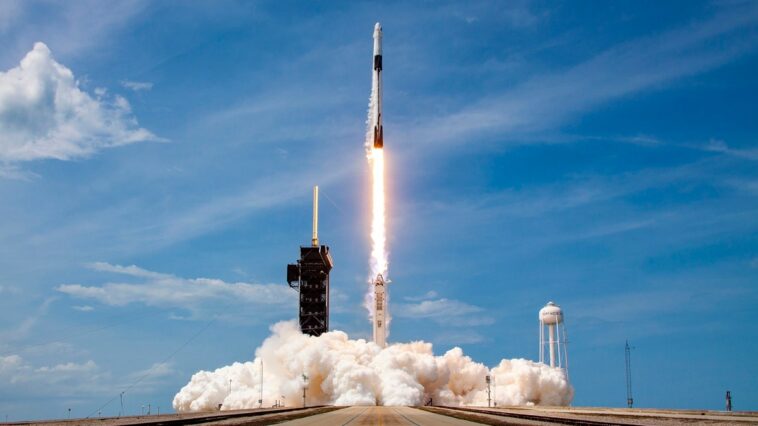SpaceX will stop producing its Crew Dragon human spaceflight spacecraft and limit its current fleet to four. Gwynne Shotwell, the company’s president, confirmed the change in a statement to Reuters on Monday. She said that SpaceX was nearing the completion of its last capsule, after which it will only manufacture components for older capsules to be reconditioned.
The decision comes as SpaceX works on its Starship rocket, a new spaceship that will be at the center of the company’s plans to send humans to the moon and Mars. Despite the fact that numerous prototypes have completed test flights, Starship has yet to reach space, and its massive booster stage has yet to fly.
Crew Dragon, on the other hand, has a proven track record and has played a key role in reducing the United States’ dependence on Russia to transport people to and from the International Space Station (ISS). For the first time in over a decade, the United States will launch a crewed spacecraft. On its Crew Dragon Demo-1 voyage in March of this year, Crew Dragon became the first spacecraft to enter Earth orbit. The capsule was launched atop one of SpaceX’s reusable Falcon 9 rockets for its maiden flight test.
The spacecraft arrived at the International Space Station, docked, then undocked safely several days later before returning to Earth and parachuting into the Atlantic Ocean.
The next test flight, Demo-2, however, increased the stakes and enthralled the country since it was the capsule’s first human flight. It was also the first mission in almost a decade that astronauts from the United States have launched into space from American soil.
NASA astronauts Robert Behnken and Douglas Hurley boarded a Crew Dragon spacecraft and launched to the International Space Station on May 30, 2020, in a mission that functioned as a demonstration of SpaceX’s crew transportation system.
“A new era of human spaceflight starts when American astronauts launch from American territory to low-Earth orbit on an American rocket for the first time since the Space Shuttle Program ended in 2011,” NASA stated.
The United States has depended on Russia and its Soyuz capsules for ISS transportation from the conclusion of the Space Shuttle Program until that day.
All-Civilian Spaceflight for the First Time
In September 2021, as part of the Inspiration4 mission, Crew Dragon set a new milestone by launching an all-civilian crew into space for the first time.
Hayley Arceneaux, a medical assistant and childhood cancer survivor; Jared Isaacman, a billionaire and founder of payment processing startup Shift4 Payments; Sian Proctor, a geoscientist and scientific communicator; and Chris Sembroski, a data engineer and air force veteran, made up the team. Without a professional astronaut on board, the team orbited Earth for nearly three days.
They landed safely in the Atlantic Ocean and returned to Earth. More than $243 million was raised for St. Jude Children’s Research Hospital as a result of the project.
Longest U.S. Orbit For Crewed Craft
A Crew Dragon capsule set a new record for the longest duration spent in orbit by a US crew spacecraft in February of last year. It was also Crew-1, the company’s first operational non-demo flight.
The Crew Dragon capsule Resilience launched on a Falcon 9 rocket on November 15, 2020, and docked with the International Space Station the next day. Its crew disembarked and boarded the International Space Station.
The capsule was still linked to the station 84 days later, breaking a US record established in 1974 by the Skylab 4 mission, in which three astronauts went to NASA’s Skylab space station aboard an Apollo spacecraft. The record was also shattered. The crew spent a total of 168 days in space after spending 167 days on the ISS. In May of 2021, the capsule splashed down in the Gulf of Mexico, returning to Earth.




